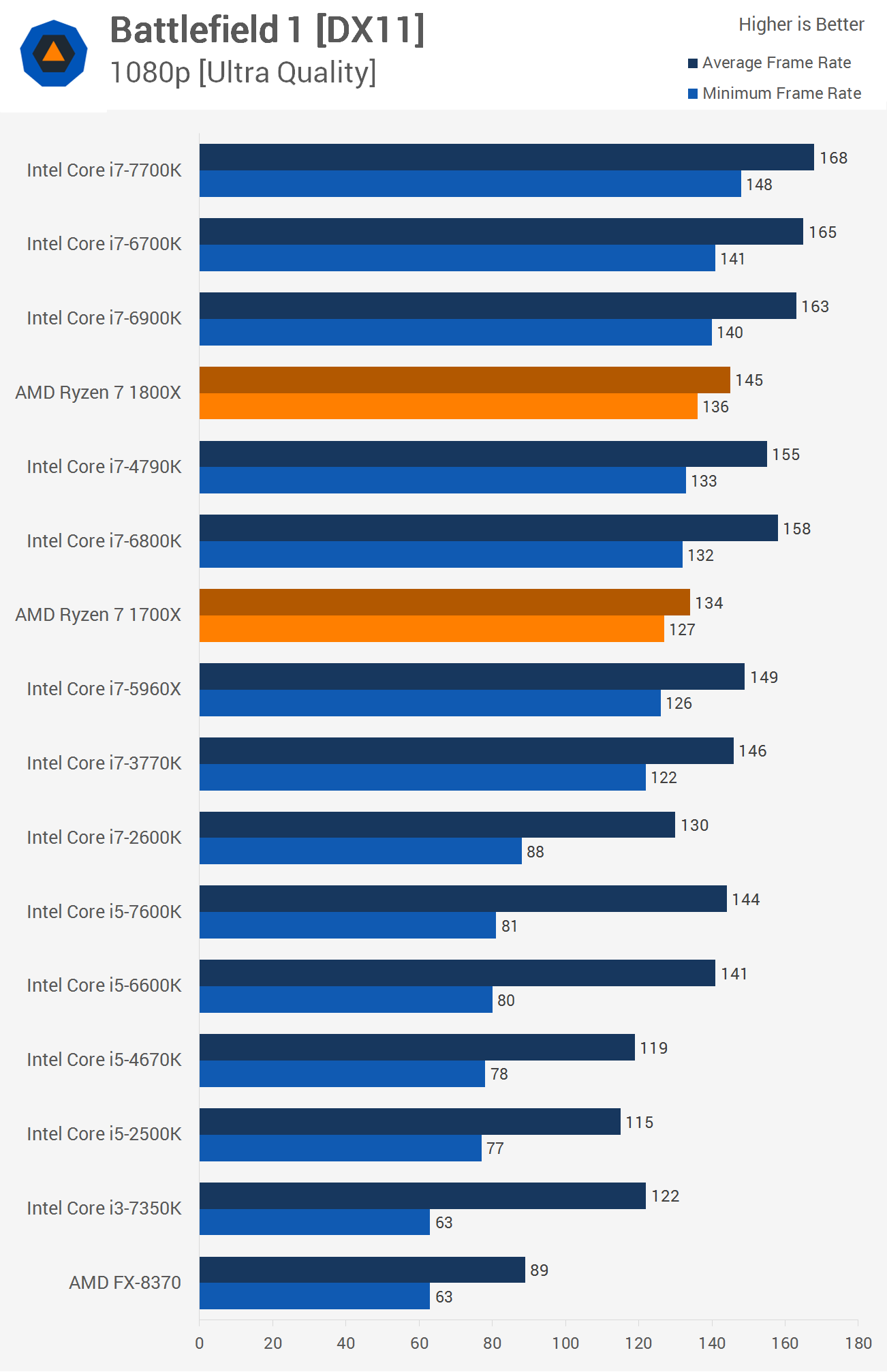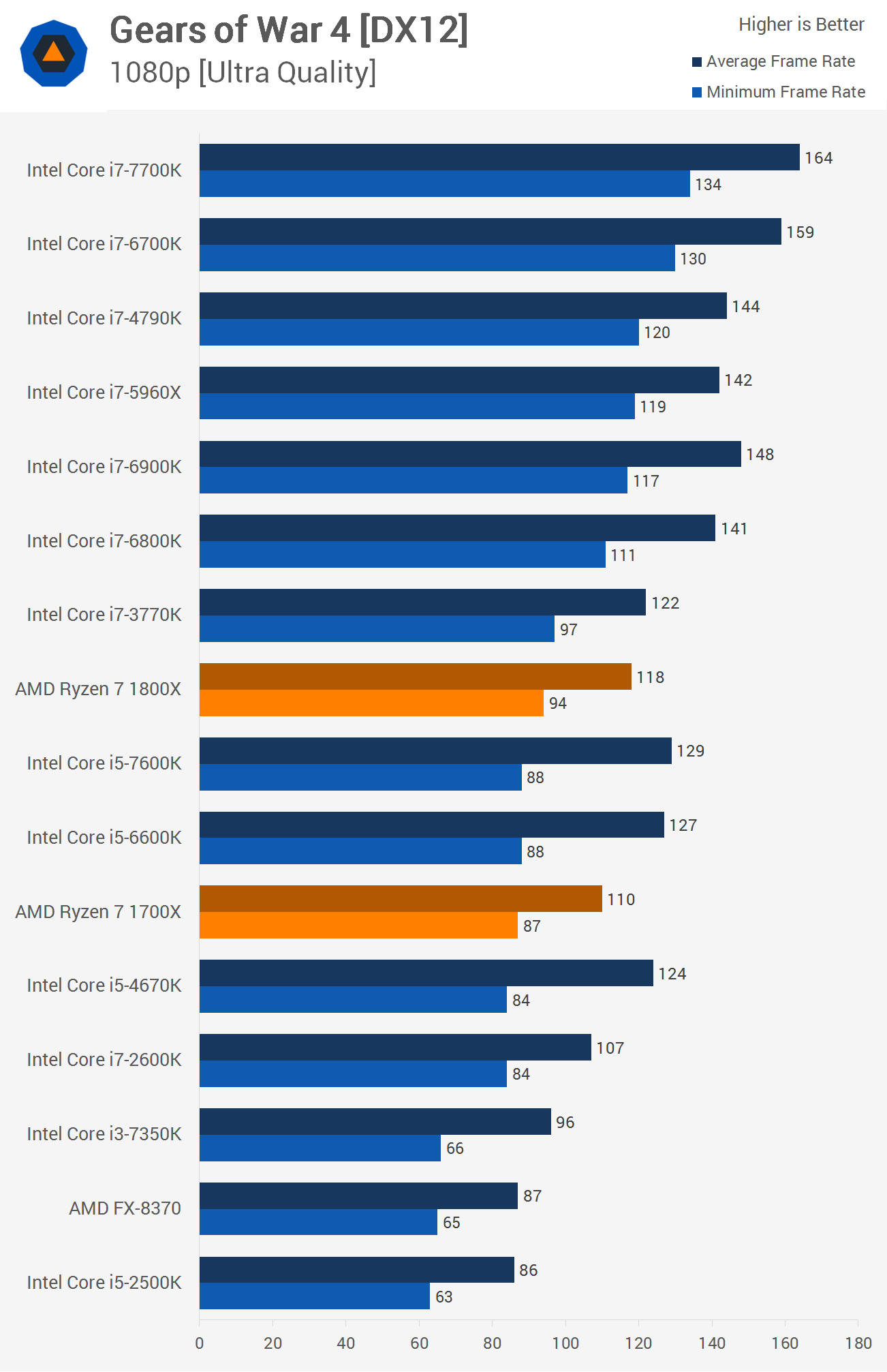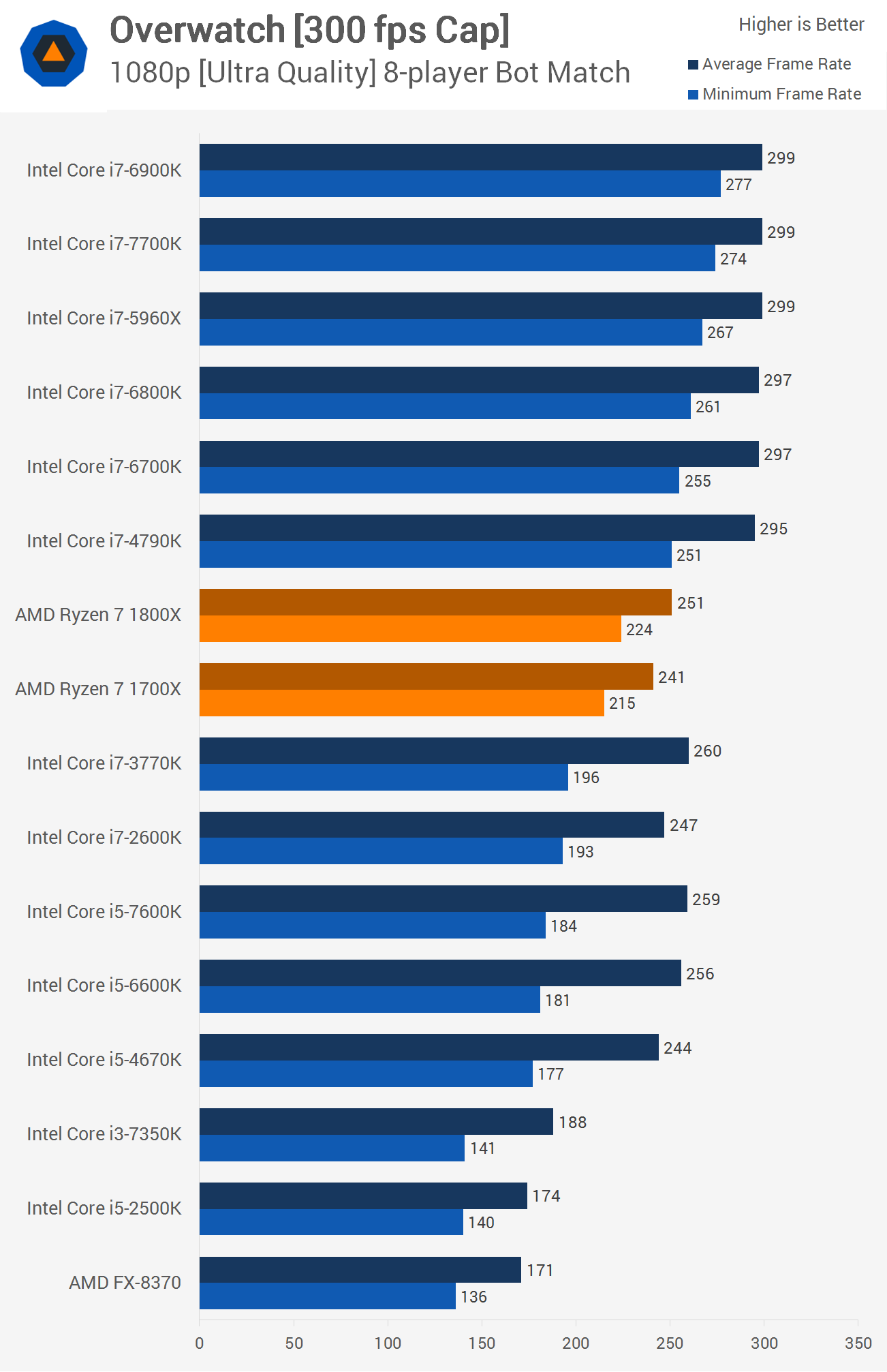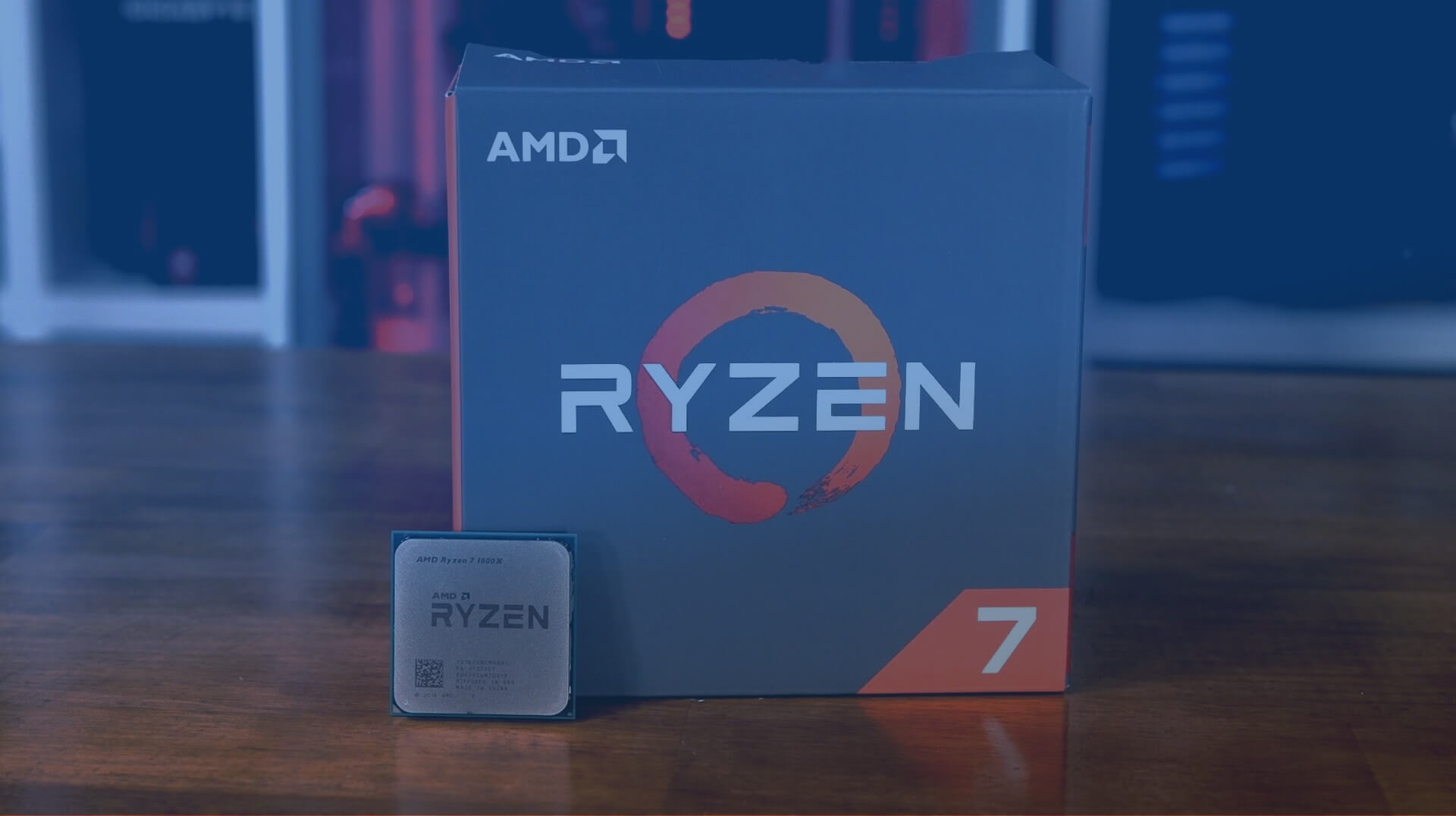Gaming Benchmarks

Having seen such impressive productivity performance, I had high hopes for Ryzen when it came to gaming. Please note that the gaming graphs are arranged by minimum frame rate and the Titan XP was used for testing at 1080p to reduce the GPU bottleneck. With slower GPUs or more demanding quality settings the results will even up and CPUs that lag behind in these tests will look more competitive.
Anyway, Ryzen trails Skylake and Kaby Lake when it comes to gaming performance, but the margin isn't significant, at least in Battlefield 1. Despite the 1800X's great minimum fps performance, it's hard to not notice its lower than expected average frame rate, which is on par with the Ivy Bridge 3770K.
Not a bad result by any means, and its worlds better than the old FX-8370. Still we are seeing that when Ryzen 7 isn't fully utilized its slightly weaker IPC performance can be seen.
The 1700X, meanwhile, matched the minimum frame rate of the 5960X, though the average was similar to the Sandy Bridge 2600K.

In Gears of War 4, the 1800X struggled to keep pace with the Ivy Bridge 3770K while the 1700X was again similar to the 2600K, though at least the minimum frame rates remained strong. This seems like an early indication that gamers with a high refresh rate monitor will want to stick with the Core i7 range.

The Overwatch 8-player bot test is very demanding and in the past we have seen the Core i5 processors struggled to keep up with the Hyper-Threading enabled Core i7s. Ryzen fits in the middle of those two when looking at minimum frame rates while the average frame rates weren't too impressive again.
The Ryzen processors clearly aren't allowing the Titan XP to hit the same highs, though their performance is a massive step forward from the FX-8370 and their minimums are better than those of the Sandy Bridge and Ivy Bridge Core i7 processors.

The last game I had time to test was Watch Dogs 2, in which the CPU utilization hovered between 70 and 80% utilization on the Ryzen processors with an even load across all 16 threads.
Despite that, they didn't top Intel's eight-threaded Core i7 processors like the 5960X. In fact, Ryzen was a good bit slower here, at least compared to the 6800K, 6700K and 7700K. That said, Ryzen did manage to outperform the Haswell and Ivy Bridge Core i7s as well as all of the Core i5 processors.
So again, not exactly bad results, but I had honestly expected to see better performance in a game that can spread a heavy load across 16-threads.
